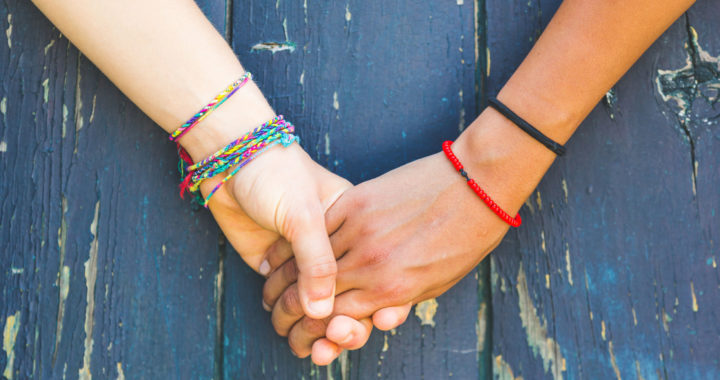by Krista Zanfardino, LCSW, Associate Vice President
Grief is a tricky experience: it can feel overwhelming, traumatizing, and never-ending. I learned that one of my best friends died from an opiate overdose on Facebook; in a moment of despair, her fiancé posted the news. You never expect to hear about the death of someone in their early 30s. However, there is always a tiny, terrible part of loving someone with an addiction that is always there, always dreading the possibility. But somehow, like many people who love someone with this terrible disease, you’re still never ready for it.
I met my friend while working at a community residence for adults who have mental health diagnoses. I was fresh out of college with a degree in Sociology and Psychology; she fell into the job because she liked helping people. We were both in our twenties and passionate about our work; we became fast friends. She always had some anxiety, but it didn’t affect her ability to do her job. She was organized, energetic, and a great advocate for our clients. After working together for a few years, I moved to another agency and pursued my Masters in Social Work; she stayed working at the residence.
After a messy breakup with a boyfriend, she needed a roommate and I had a spare room. It seemed like a perfect fit. However, shortly after moving in together, I realized that something changed–she wasn’t the same person anymore. She began experiencing what I recognized as symptoms of Bipolar Disorder and Borderline Personality Disorder. She left her job, began abusing her psychiatric medications, and attempted suicide.
As a mental health professional, every day I went to work to help people who experienced many of the same struggles that my friend faced. Over the years, I have received countless phone calls from individuals asking how to get their loved ones into treatment. “Keep trying,” I would tell them, and offer to speak to them myself, but there’s no easy answer and they have to be ready to take that step. I followed my own advice and kept trying with my friend and roommate. Eventually she agreed to therapy, which was a step in the right direction.
After a year of living together, we both moved to new places yet kept in close touch, talking on the phone daily. Now riddled with anxiety, she often felt unable to go out in public; it was a struggle for her to leave the house. I kept trying. Numerous times over the next few years, I drove her to the hospital or rehab when she felt ready to seek help. Each time, she would sign herself out. Her addiction escalated and she lost most of the significant relationships in her life, with the exception of her fiancé.
The week before she died, she admitted to me that she had started using heroin. I knew that this admission was a huge step, and we thought that her life was about to change for the better. That same week, I went with her to select her wedding dress. I continued to encourage her to get help, but she just wasn’t ready. That same week, I learned of her death.
This isn’t a story with a happy ending, but it is a story I share as a mental health clinician who lost her best friend to mental health issues and addiction. Yet I still know that there is hope. There are programs that offer recovery options: groups, therapy, medications, and support and guidance for loved ones. Opioid addiction is not something to ignore, something to sweep under the rug, something to not take seriously. Now, more than ever, we are seeing this addiction impact too many lives. No one is exempt from the potential consequences of addiction, and while it may feel overwhelming, you are definitely not alone.
